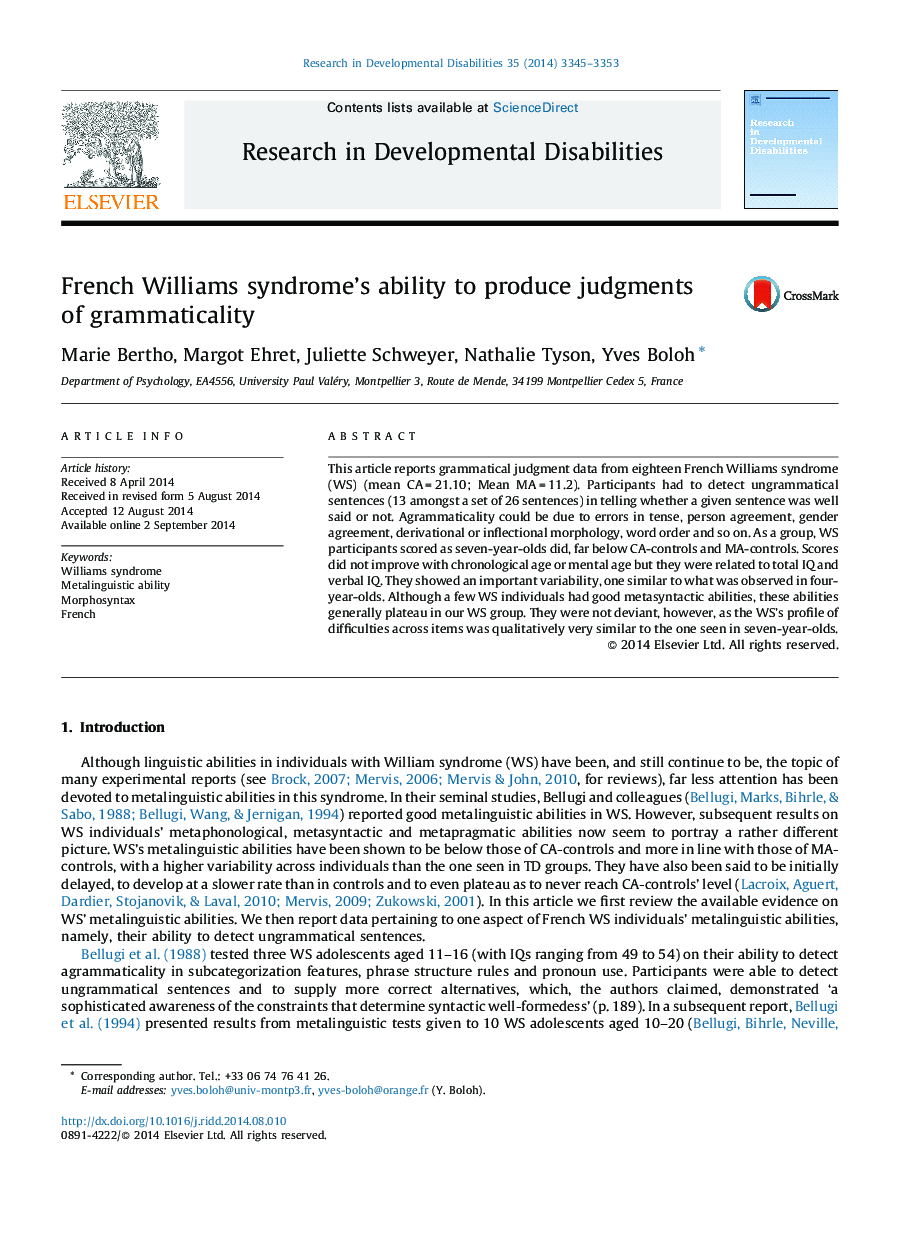| Article ID | Journal | Published Year | Pages | File Type |
|---|---|---|---|---|
| 10317437 | Research in Developmental Disabilities | 2014 | 9 Pages |
Abstract
This article reports grammatical judgment data from eighteen French Williams syndrome (WS) (mean CAÂ =Â 21.10; Mean MAÂ =Â 11.2). Participants had to detect ungrammatical sentences (13 amongst a set of 26 sentences) in telling whether a given sentence was well said or not. Agrammaticality could be due to errors in tense, person agreement, gender agreement, derivational or inflectional morphology, word order and so on. As a group, WS participants scored as seven-year-olds did, far below CA-controls and MA-controls. Scores did not improve with chronological age or mental age but they were related to total IQ and verbal IQ. They showed an important variability, one similar to what was observed in four-year-olds. Although a few WS individuals had good metasyntactic abilities, these abilities generally plateau in our WS group. They were not deviant, however, as the WS's profile of difficulties across items was qualitatively very similar to the one seen in seven-year-olds.
Keywords
Related Topics
Life Sciences
Neuroscience
Behavioral Neuroscience
Authors
Marie Bertho, Margot Ehret, Juliette Schweyer, Nathalie Tyson, Yves Boloh,
